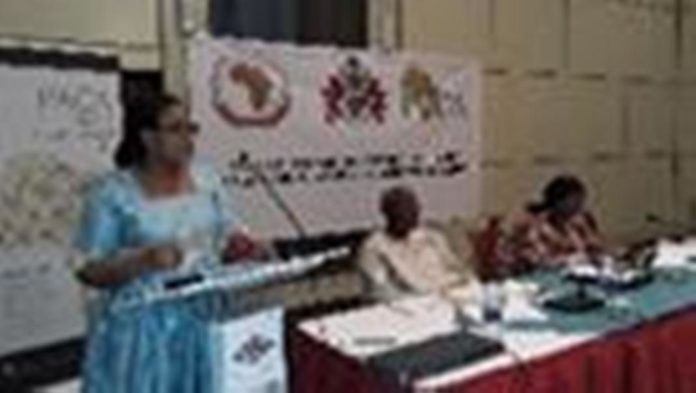By Fatoumatta K Jallow
The Minister of Agriculture Omar A Jallow, has stated that 91% of the rural poor, work as farmers. OJ as he is fondly called, made this remark on Tuesday June 19th 2018, at a one-day national conference on the development challenges posed by Aflatoxin. The conference aims to provide a platform for stakeholders from the public and private sectors, as well as farmer based organizations and value chain operators, to discuss the state of affairs of Aflatoxin in the country, with support from the Food Safety and Quality Authority (FSQA).
Jallow said Aflatoxin contamination is not new to the Gambia, though knowledge of its impact is mostly limited as poor quality of crops, preventing their access and acceptance to premium markets, and it’s contribution to liver cancer; that this view is supported by the country’s Situational Analysis and Action Plan study (C-SAAP), commissioned by the Partnership for Aflatoxin Control in Africa (PACA) in 2015.
‘‘This has adverse economic and social implications for us since this is a sector that engages a significant number of our workforce, whose livelihood depends on earnings from their produce. Low earnings have a direct impact on poverty eradication efforts because our farmers reside in the rural communities, where they account as 42% of the population and 60% of the poor,’’ O J said.
Dr Isatou Touray, the Minister of Trade, Industry, Regional Integration and Employment, said the Gambia is historically a trading hub and will continue to play that role; that trading of goods especially of agricultural products, is important, taking into consideration the significant number of the workforce it engages in one form or another, along the value chain. And it is also the source of income for the country’s farmers, who are the poorest members of ‘our’ society.
“At the level of my Ministry, numerous efforts have been undertaken to contribute to the control of Aflatoxin contamination in crops destined for export,’’ she said; that recent major interventions, enhanced integrated framework project where a lot of work was done on groundnut and cashew and farmers have been assisted on this development with manuals from the Farmer Field School (FFS).
Director General of FSQA Zainab Jallow, said the mitigation of Aflatoxin in our crops and its far reaching impact on agriculture, trade and health, remains a challenge; that this is due to the limited knowledge on the cross-cutting nature of Aflatoxin in the past, and thus the fractured manner the issue was addressed.
‘‘The PACA is being supported by three Ministries and today’s conference is funded by the NEMA Project and the Technical support provided by the Ministry of Trade, which indicates more commitment from various stakeholders. PACA conducts annual sampling of groundnuts and maize we also sensitized various communities and farmers “she concluded.
















